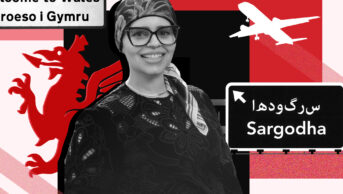
Roger Yebuah / Alamy Stock Photo
Almost one in three pharmacists (28%) who identify as ‘African/Caribbean/black other’ have experienced racism from colleagues over the past year, a survey carried out by The Pharmaceutical Journal has revealed.
Among the 1,219 respondents to The Pharmaceutical Journal’s salary and job satisfaction survey, 17 out of 60 black pharmacists working across all sectors of pharmacy in the UK answered ‘yes’ when asked: ‘Have you experienced racism from colleagues in the past year?’.
Some respondents included comments describing experiences of being underpaid, unequal work allocation and a lack of support, compared with colleagues.
The responses also highlighted micro-aggressions, such as colleagues touching or commenting on their hair or their names being mispronounced, and stressed the difficulty of identifying specifically race-based discrimination.
One respondent said: “Racism in the workplace isn’t usually racial slurs, it’s actually isolation, lack of opportunity and the employee eventually leaving.”
Another said there were “no very senior pharmacists” that they felt looked like them in Scotland and that “most people of my colour move to England to progress”.
The Pharmaceutical Journal‘s survey also found that 28 out of 146 South Asian respondents (19%), 2 out of 15 who identified as mixed race (13%), 5 out of 56 ethnically Chinese pharmacists (9%) and 31 respondents out of 872 identifying as white also said they had experienced racism from colleagues in the past year.
Some respondents identifying as South Asian recalled experiences of bullying, being singled out for searches and being the subject of racial slurs, while other respondents identifying as Chinese said they had received comments about their culture and heritage or were asked to change their name.
Responses also included examples of potential unconscious bias, such as being overlooked for promotion, achievements not being recognised, poorer performance appraisals and favouritism.
One Muslim respondent said they had received comments for asking for time off during Ramadan and Eid, and for not attending pub crawls organised by colleagues.
Amandeep Doll, head of professional belonging and engagement at the Royal Pharmaceutical Society (RPS), said: “Racism and any form of discrimination is unacceptable and has no place in the workforce. This can have a profound effect on pharmacists’ wellbeing and career progression. We encourage all pharmacists to speak out against discriminatory behaviour and for managers and employers to provide safe and inclusive spaces for them to do so.
“Addressing racism is a priority for us. Through our ‘Inclusion and diversity strategy‘ and initiatives like our ‘Action in belonging, culture and diversity group‘, we encourage individuals to demonstrate their support for a profession that is inclusive, celebrates diversity, creates a culture of belonging and supports pharmacy teams’ health and wellbeing.”
Paul Day, director of membership and communities at the Pharmacists’ Defence Association (PDA), said: “Sadly some pharmacists do experience racism from employers or other organisations, colleagues or patients.
The PDA established the ‘BAME pharmacists network’ in 2020 to help address racism. Our members say that not being racist is not enough to rid the profession, sector and society of this ill, but that every individual and organisation should be explicitly anti-racist.
“The PDA is proudly anti-racist and calls on all organisations to also make that same declaration and take the action to make that real.”
Nathan Burley, president of the Guild of Healthcare Pharmacists (GHP), added: “These disappointing results unfortunately show that racism and discrimination appear endemic in the profession.
“Racism, sexism, and discrimination based on protected characteristics constitute workplace issues that staff should not feel they have to face alone.”
NHS England’s first ever ‘Pharmacy Workforce Race Equality Standard’ (PWRES) report, published on 27 September 2023, revealed that pharmacists of Black, Asian and minority ethnic origin were underrepresented in senior roles in England, with female pharmacists disproportionately affected.
2 comments
You must be logged in to post a comment.



The fight against racism is a collective struggle not for only those affected but everyone.
'At our core, we humans are tribal. Constantly, our subconscious is bombarded with cues that identify who is “us” and “them.” Perceived similarities of status and values make it much more likely that we will connect and form lasting bonds with our fellows.' [https://behumanproject.org/why-are-we-tribal/]
So, when an individual perceives racism, it could just be tribalism. It is not so much about what we look like or where we come from, but how we speak and how we behave / conform with the norms of the tribe. I left a position in a university because I believed that I had been overlooked for promotion and that my achievements were not being recognised ... but this had nothing to do with racism. Was it "constructive dismissal"? No. It was my failure to "conform to the norms of the tribe" that made me want to look for another tribe to join where my achievements would be recognised. And I did indeed find such a place.